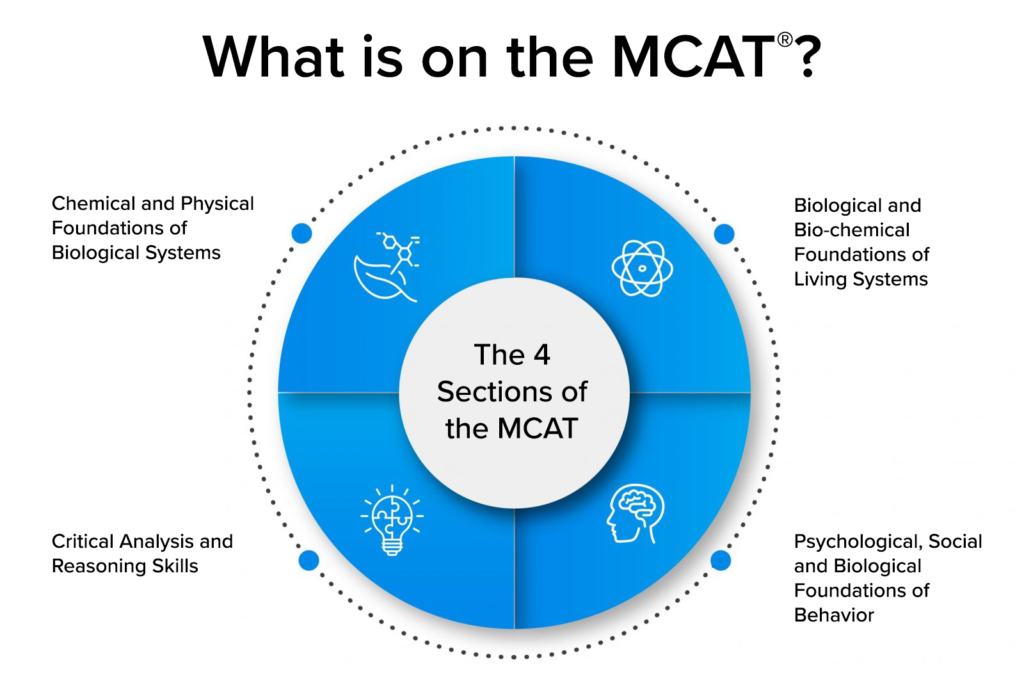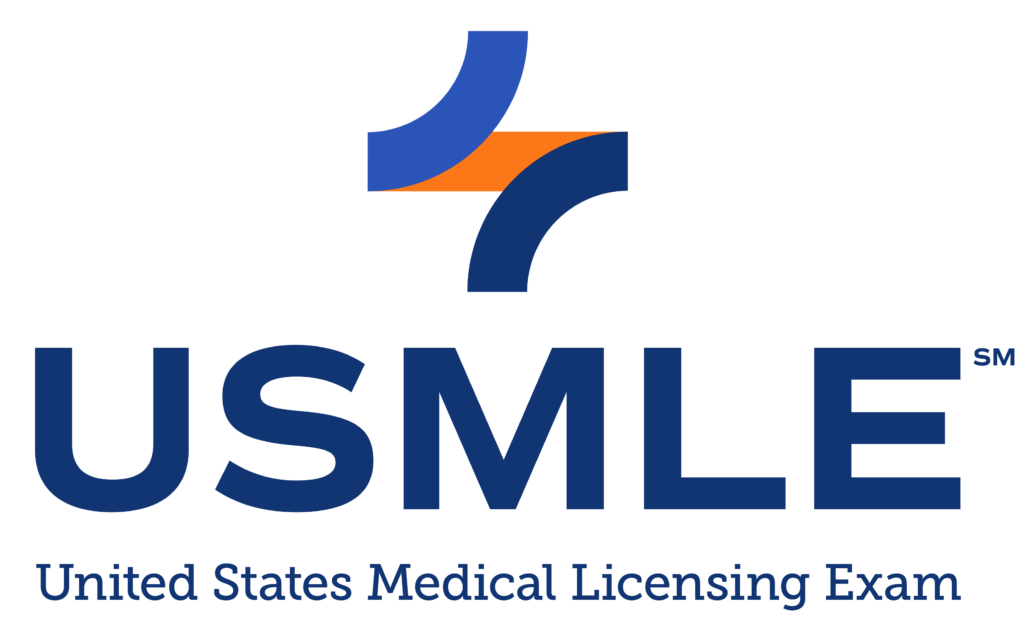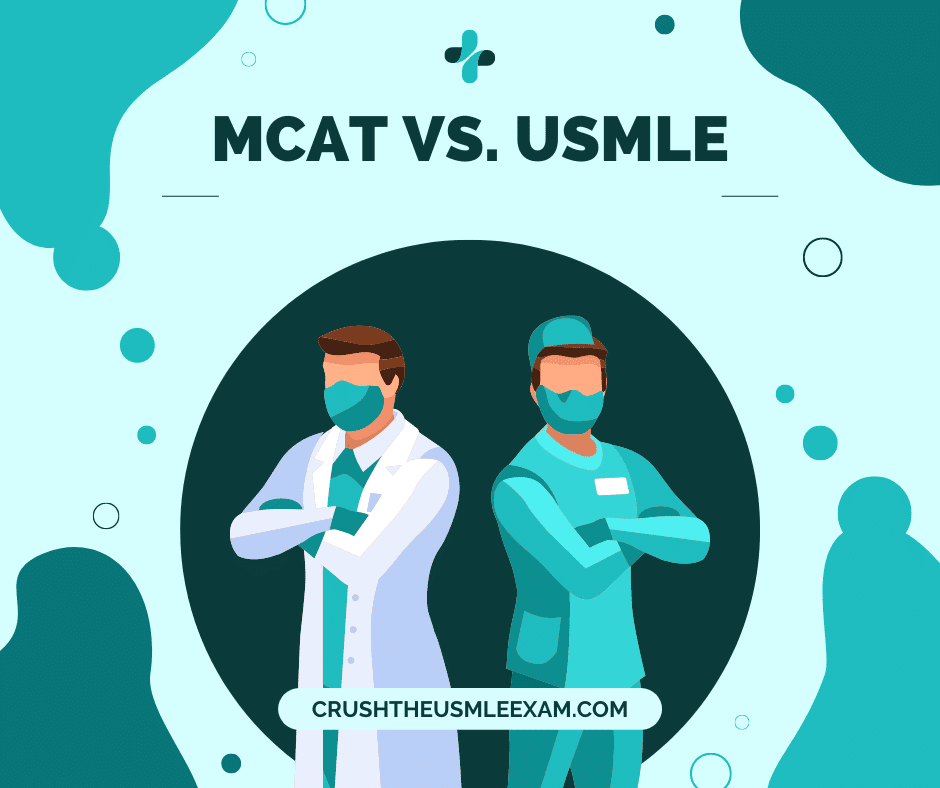Navigating the journey to becoming a medical professional in the U.S. requires success in multiple standardized exams, each playing a pivotal role at different stages of the process. Two of the most significant exams for aspiring doctors are the MCAT (Medical College Admission Test) and the USMLE (United States Medical Licensing Examination). While they both assess a candidate’s capabilities in medical knowledge, they serve distinct purposes and test different sets of skills at different points in a medical career.
The MCAT presents the first major hurdle for medical school admission, testing foundational knowledge in sciences, critical thinking, and problem-solving abilities. In contrast, medical students take the USMLE in multiple stages during and after medical school to demonstrate their readiness to practice medicine independently. This exam assesses both clinical knowledge and clinical skills, marking the transition from theoretical learning to practical medical application.
This guide breaks down the key differences between the MCAT and USMLE. It covers what each exam tests, their formats, and why these differences matter. It also answers common questions like, “Which exam is harder, the MCAT or the USMLE?” and “Are MCAT and USMLE scores correlated?” By the end, you’ll understand both exams, their roles in medical education, and how to prepare effectively for each.
Key Takeaways
- Preparation for both exams requires dedicated study, but they differ significantly in their scope, content, and focus.
- The MCAT is designed to assess pre-medical knowledge and critical thinking skills, required for medical school entry.
- The USMLE series is taken during and after medical school and assesses your clinical knowledge and skills for medical licensure.
- MCAT scores predict your ability to handle medical school coursework, while USMLE scores determine whether you can practice medicine independently.
What is Tested on MCAT vs. USMLE?
Understanding the differences between the MCAT and USMLE is essential for anyone on the path to becoming a doctor. While both exams assess knowledge and skills needed for a medical career, they focus on different stages of your journey.
MCAT: Pre-Medical Knowledge Assessment
The MCAT serves as the first major hurdle in your medical journey. It assesses whether you possess the foundational scientific knowledge and critical thinking skills necessary to succeed in medical school. The exam evaluates both your academic preparation and your ability to approach problems logically and analytically.
The MCAT consists of four key sections:

Biological and Biochemical Foundations of Living Systems:
This section covers core topics in human biology, biochemistry, and molecular biology. It examines concepts related to the structure and function of cells, as well as the biochemical processes that sustain life. You’ll need to understand how living organisms maintain their internal environments and adapt to changes.
Chemical and Physical Foundations of Biological Systems:
Here, you’ll face questions on physics and general chemistry, particularly in how these subjects apply to biological systems. This section tests your knowledge of how chemical reactions and physical principles influence the workings of living organisms, such as understanding fluid dynamics in the circulatory system or the chemistry behind enzyme functions.
Psychological, Social, and Biological Foundations of Behavior:
In this section, the MCAT focuses on psychology and sociology to evaluate how human behavior and social factors relate to health. You’ll need to know how mental health, socioeconomic factors, and behavior influence healthcare decisions. It’s all about understanding the complex interplay between individuals and the healthcare system.
Critical Analysis and Reasoning Skills (CARS):
This part doesn’t test scientific knowledge directly. Instead, CARS assesses your ability to read complex passages from the humanities and social sciences and extract meaningful information. It asks you to analyze and reason through scenarios to determine the most logical conclusions, testing your comprehension and critical thinking.

USMLE: Medical Knowledge and Clinical Skills Assessment
Once you’ve made it through medical school, the USMLE comes into play. Unlike the MCAT, which is about evaluating your pre-medical knowledge, the USMLE tests your readiness to practice medicine. It’s a series of three exams that evaluate both your medical knowledge and clinical skills.
Step 1:
The first step of the USMLE tests your understanding of the foundational sciences necessary for clinical practice. This includes subjects like anatomy, physiology, pharmacology, microbiology, pathology, and biochemistry. It’s a critical checkpoint in your medical education, typically taken after the first two years of medical school, and it evaluates your knowledge of how diseases develop and how the body functions.
Step 2:
Step 2 is divided into two parts:
- Step 2 CK (Clinical Knowledge): This portion assesses your ability to apply medical knowledge in a clinical context. You’ll be tested on how well you can use your scientific understanding to make decisions in patient care. It covers everything from diagnosis to treatment and follows a more clinical and applied approach to the material you studied in Step 1.
- Step 2 CS (Clinical Skills, now discontinued): Previously, Step 2 also included a practical exam that evaluated your ability to interact with patients, perform physical exams, and communicate effectively. However, Step 2 CS was discontinued due to logistical reasons, but clinical skills are still assessed in other ways during medical school.
Step 3:
You take the final step of the USMLE after completing medical school. Step 3 evaluates your ability to practice medicine independently. It tests your clinical decision-making skills and your ability to manage patients on your own. This step plays a crucial role in determining if you’re ready to start practicing as a licensed physician. The exam focuses on patient care, medical ethics, and your ability to make decisions under pressure.
In short, while the MCAT is an assessment of your pre-medical knowledge and reasoning skills, the USMLE focuses on whether you’re ready to treat patients effectively and safely as a doctor. Each exam serves a distinct purpose in your medical career, preparing you for different stages of your journey.
Differences in the Exam Format
The formats of the MCAT and USMLE are quite different, reflecting their distinct purposes in your medical journey. Here’s a closer look at how they compare in terms of duration, question types, scoring, and timing.

MCAT Exam Format
- Duration: The MCAT is a long exam, typically lasting about 7.5 hours, including short breaks. This includes time for the four sections, plus a 10-minute break after each of the first three sections and a longer break after the third section.
- Question Type: The MCAT is multiple-choice only. You’ll answer a series of questions based on scientific concepts, reasoning skills, and critical analysis. It’s designed to assess not only what you know but how well you can think critically and apply your knowledge.
- Scoring: Each of the four sections on the MCAT is scored between 118 and 132, and the total score ranges from 472 to 528. A higher score indicates better performance across the sections, but the MCAT also considers your section scores when evaluating your application.
- Timing: You’ll take the MCAT before applying to medical school, so it’s part of the admissions process. It’s an exam you need to prepare for carefully, as it plays a significant role in determining your eligibility for medical school.
USMLE Exam Format
The USMLE consists of three steps, each with different formats and purposes. Here’s how they break down:
- Step 1:
- Duration: This is a one-day exam lasting about 8 hours.
- Question Type: Like the MCAT, it’s all multiple-choice questions. Step 1 tests your knowledge of basic medical sciences, such as anatomy, pathology, pharmacology, and physiology.
- Scoring: This used to have a numerical score, but Step 1 is now pass/fail. This shift aims to reduce stress, but passing Step 1 is still a major milestone in your journey toward becoming a doctor.
- Timing: Typically taken after the first two years of medical school, it focuses on foundational medical knowledge.
- Step 2 CK (Clinical Knowledge):
- Duration: Like Step 1, this is a one-day exam but lasts about 9 hours.
- Question Type: This section is also multiple-choice. It focuses on how well you can apply medical knowledge in clinical settings, particularly diagnosis and treatment.
- Scoring: Step 2 CK is numerically scored, meaning you’ll receive a score based on your performance, which will be used by residency programs to evaluate your clinical knowledge.
- Timing: Step 2 is typically taken during the later years of medical school.
- Step 3:
- Duration: This is the most comprehensive part of the USMLE, spanning two days. The first day focuses on multiple-choice questions, while the second day assesses your clinical decision-making and patient care through computer-based simulations.
- Question Type: Step 3 includes multiple-choice questions and clinical scenarios, which test your ability to make decisions in real-world medical situations.
- Scoring: Like Step 2 CK, Step 3 is numerically scored. Successful completion is essential for obtaining your medical license.
- Timing: Step 3 is taken after completing medical school, typically during your first year of residency.
Key Differences
- Length of Exam: The MCAT is about 7.5 hours long, while the USMLE Step exams tend to be longer, especially Step 2 CK (9 hours) and Step 3 (two days).
- Multiple Days vs. One Day: The MCAT is a single-day event, whereas Step 3 of the USMLE spans two days, reflecting the increased complexity of the content tested at that stage.
- Scoring: The MCAT uses a scoring range, whereas Step 1 is pass/fail (though Step 2 CK and Step 3 are numerically scored). This means the MCAT score provides more specific feedback on your performance, while the USMLE Step 1 simply requires passing.
- Timing: The MCAT is taken before you apply to medical school, while the USMLE exams are spaced out during and after medical school, focusing on assessing clinical skills as you progress in your training.
Understanding these differences is crucial for planning your study schedule and exam preparation. Each exam has a distinct purpose and format, so being aware of these factors can help you tailor your approach to each.
Content Covered on Each Exam
The MCAT and USMLE focus on very different stages of medical education. Understanding these differences will help you prepare more effectively for each exam.
MCAT: Building the Foundation for Medical School
The MCAT is all about testing whether you have the scientific knowledge and reasoning skills needed to succeed in medical school. It doesn’t focus on clinical medicine but instead lays the groundwork by evaluating your understanding of core pre-medical subjects:
- Biology & Biochemistry: Cellular structures, genetics, molecular biology, metabolism, and human physiology.
- Chemistry & Physics: Chemical reactions, thermodynamics, fluid dynamics, electrostatics, and their applications in biological systems.
- Psychology & Sociology: Theories of behavior, mental health, social structures, and how cultural and environmental factors impact health.
- Critical Thinking & Analysis: The CARS section tests your ability to read, analyze, and interpret complex texts, similar to what’s expected in medical school.
The MCAT doesn’t just assess whether you can memorize facts—it evaluates how well you apply scientific principles to problem-solving. Many questions require integrating information from different disciplines, making it a test of both knowledge and logic.
USMLE: Applying Medical Knowledge in Patient Care
The USMLE, in contrast, ensures that medical students and graduates have the skills and knowledge necessary to practice medicine safely. Instead of testing broad scientific principles, it assesses how well you can apply that knowledge in real-world medical settings.
Each step of the USMLE builds upon the last, testing different aspects of a doctor’s training:
- Step 1: Focuses on the basic medical sciences, including:
- Anatomy, physiology, and biochemistry (how the body works)
- Pathology and microbiology (diseases and infections)
- Pharmacology (how drugs work in the body)
- Immunology and genetics (disease mechanisms and inheritance)
- Step 2 CK: Tests clinical knowledge, requiring a deeper understanding of:
- Diagnosis and treatment of diseases
- Interpretation of lab results and imaging
- Patient management in different medical specialties
- Medical ethics and professional behavior
- Step 3: The final exam evaluates whether you can apply everything you’ve learned to real-life patient care. It includes:
- Advanced clinical decision-making
- Managing multiple medical conditions at once
- Responding to emergencies
- Developing treatment plans independently
The Key Difference: Theory vs. Application
In simple terms, the MCAT tests your ability to think like a medical student, while the USMLE tests your ability to think like a doctor.
- The MCAT is broad, testing general scientific knowledge and reasoning skills.
- The USMLE is deep, requiring mastery of medical knowledge and the ability to apply it in patient care.
Both exams are essential steps in your medical journey, but they challenge you in very different ways. Understanding these differences will help you prepare strategically and focus on the right skills at the right time.
Are MCAT and USMLE Scores Correlated?
Medical school brings a lot of pressure to perform well on both the MCAT and the USMLE. However, here’s something that might surprise you: despite both exams being crucial to your medical journey, MCAT scores and USMLE scores do not directly correlate.
What does this mean? Simply put, excelling in one doesn’t automatically guarantee success in the other. Let’s break it down.
MCAT Scores
The MCAT, or Medical College Admission Test, is your ticket into medical school. It focuses on testing your understanding of basic sciences like biology, chemistry, physics, and psychology and evaluates your critical thinking and problem-solving skills. Your score on the MCAT plays a significant role in determining whether you get into medical school, but it doesn’t necessarily predict how well you’ll do on the USMLE, which comes later in your career.
While a high MCAT score shows that you have a solid grasp of these foundational concepts, it doesn’t necessarily mean that you’ll easily transition to the more clinical focus of the USMLE. The MCAT is more about broad scientific knowledge and reasoning, while the USMLE dives into medical knowledge and clinical application.
USMLE Scores
On the other hand, you take the USMLE after starting medical school, and it evaluates your ability to apply your medical knowledge to real-world clinical scenarios. The exam consists of multiple parts: Step 1 focuses on foundational medical sciences, Step 2 on clinical knowledge and skills, and Step 3 assesses whether you’re ready to practice independently as a doctor.
Here’s the key takeaway: the USMLE presents a different challenge compared to the MCAT. While both tests require deep knowledge, the USMLE emphasizes practical, clinical application, building on what you learn in medical school. So, even if you perform well on the MCAT, that doesn’t guarantee success on the USMLE, and vice versa.
The Disconnect: Why the Scores Don’t Match Up
The lack of correlation between the MCAT and USMLE scores is due to the different goals and content of each test. The MCAT primarily assesses pre-medical knowledge, focusing on concepts that lay the foundation for your medical education. The USMLE, however, focuses on how well you can apply that knowledge in a clinical setting.
While both exams are important, they test different skills at different stages of your journey—so don’t stress about one exam predicting the other. Instead, focus on preparing thoroughly for each one individually.
What Does This Mean for You?
The bottom line is this: doing well on the MCAT is a great step toward getting into medical school, but it doesn’t guarantee that you’ll perform similarly well on the USMLE, which is much more focused on clinical skills. Likewise, excelling on the USMLE doesn’t mean that you automatically had an easy time with the MCAT.
To be successful, you need to approach each exam with its unique preparation strategy. For the MCAT, focus on mastering foundational scientific concepts and sharpening your reasoning skills. For the USMLE, you’ll need to build on that foundation with deeper medical knowledge and clinical experience.
Both exams are crucial, but they’re stepping stones at different points in your medical career. Understanding the differences between them will help you better prepare and avoid unnecessary stress. Keep your eye on the prize, and remember, each exam is a separate challenge to conquer on its terms.
In short, Master the MCAT for medical school and focus on mastering the USMLE when you’re ready to practice medicine.
What is Harder: The MCAT or the USMLE?
When it comes to comparing the MCAT and USMLE, both exams are challenging, but in different ways. Here’s a breakdown of how each exam differs in terms of difficulty and what you can expect:
The MCAT: Challenging in Its Own Right
The MCAT tests your foundational knowledge and critical thinking skills. It covers a wide range of subjects, including biology, chemistry, physics, and psychology, and assesses your ability to think analytically and solve complex problems.
- What makes it tough: The MCAT is often considered challenging because of its breadth—you need to have a solid understanding of a variety of subjects. However, the test doesn’t require clinical knowledge or practical application. Instead, it focuses on your ability to process information and reason through complex scenarios.
- Scope: You’ll need to be well-prepared across a variety of disciplines, and it tests your ability to make connections between topics, think critically, and apply knowledge to new situations.
- The challenge: Since the test is broad, it requires rigorous preparation across many subjects. But it’s less about practical experience and more about having a strong understanding of the sciences and being able to apply logic and reasoning.
The USMLE: More Detailed, Clinical, and Intense
The USMLE is a series of exams that medical students take at various points during their education to assess their readiness to practice medicine. It tests not only your knowledge of medical science but also your ability to apply that knowledge in clinical situations.
- What makes it tough: The depth of knowledge required for the USMLE makes it more intense than the MCAT. While Step 1 of the USMLE focuses on foundational sciences (like anatomy, pharmacology, and pathology), it dives deeper into these topics than the MCAT does. As you progress to Step 2 and Step 3, the exams move from knowledge to practical application, testing your clinical judgment, decision-making, and ability to manage patient care.
- Scope: You need to understand both the theoretical aspects of medicine and how they relate to real-world scenarios. This requires extensive preparation and practical learning, which can be challenging due to the vast amount of detailed material you must master.
- The challenge: Since the USMLE moves from testing basic medical knowledge to evaluating clinical competence, it’s seen as more difficult due to the depth and clinical application of the material. It requires not just memorization but the ability to apply that knowledge to patient care.
Difficulty Level: Which is Harder?
So, which exam is harder? It depends on how you look at it.
- The MCAT is challenging because it covers a wide range of topics and tests your ability to think critically across different areas. But it doesn’t require clinical knowledge. It’s more about reasoning, problem-solving, and understanding the basics of science.
- The USMLE is harder in some ways because it dives deep into medical knowledge and requires you to apply that knowledge in real clinical settings. You can’t rely solely on theory here—you need a practical, hands-on understanding of how to treat patients and make decisions in a medical context.
In short, the MCAT is tough due to its broad scope. Still, many consider the USMLE tougher because of its depth, clinical application, and the extensive preparation required to master both theory and practice.
Frequently Asked Questions (FAQs)
1. How long does it take to prepare for the MCAT vs. the USMLE?
The MCAT typically requires 3 to 6 months of dedicated study, depending on a student’s background in science courses.
The USMLE requires significantly more preparation:
- Step 1: 6–12 months of dedicated study.
- Step 2 CK: 3–6 months of study.
- Step 3: 2–3 months of study.
Since the USMLE is more clinically focused, medical students often start preparing well in advance during their coursework.
2. Can you take the MCAT and USMLE at the same time?
No, these exams are taken at different stages of a medical career. The MCAT is taken before entering medical school, while the USMLE is taken during and after medical school.
It’s important to focus on the MCAT first before worrying about the USMLE.
3. Is the MCAT required to take the USMLE?
No, the MCAT and USMLE are unrelated in terms of requirements.
- The MCAT is only required for admission into medical school.
- The USMLE is required for medical licensure in the U.S.
However, international medical graduates (IMGs) do not need to take the MCAT but must take the USMLE to practice in the U.S.
4. Can a strong MCAT score predict success on the USMLE?
Not necessarily. While a strong MCAT score suggests that a student has a solid foundation in scientific reasoning, the USMLE is much more clinically focused.
A good MCAT score does not guarantee success on the USMLE, but good study habits and strong foundational knowledge will help in medical school.
5. Do international medical graduates (IMGs) have to take the MCAT?
No, international medical graduates (IMGs) do not need to take the MCAT.
However, if an IMG wants to practice medicine in the U.S., it must pass all three steps of the USMLE and meet the ECFMG (Educational Commission for Foreign Medical Graduates) certification requirements.
6. Which exam is more expensive: MCAT or USMLE?
The MCAT has a standard fee of around $335 (as of 2024), with additional fees for late registration and rescheduling.
The USMLE costs more:
- Step 1: ~$670 for U.S. students, ~$1,000 for international students.
- Step 2 CK: ~$670 for U.S. students, ~$1,000 for international students.
- Step 3: ~$895.
Overall, USMLE exams are more expensive than the MCAT due to multiple steps and retake fees.
7. What happens if I fail the MCAT or USMLE?
If you fail the MCAT, you can retake it up to 3 times in one testing year and 7 times in a lifetime. However, medical schools may view multiple attempts negatively.
If you fail the USMLE Step 1, you can retake it, but medical schools and residency programs take USMLE performance very seriously. Some residency programs may not consider applicants with multiple failed attempts.
In Conclusion
The MCAT and the USMLE are essential milestones in a medical career, each playing a distinct role in a doctor’s journey. The MCAT evaluates your readiness for medical school by assessing foundational knowledge and critical thinking skills. Later in your education, the USMLE tests your ability to apply that knowledge in clinical settings, ensuring that you’re prepared for real-world medical practice.
Understanding the differences in what each exam tests, their formats, and the skills required to succeed is crucial for your preparation. While the MCAT may be challenging due to its breadth, the USMLE demands a deeper level of expertise and clinical understanding, especially in its later steps. Both exams require dedication and effective study strategies, but with the right approach, you can excel in both and successfully navigate your way to becoming a licensed physician.
As you move forward, keep in mind that your performance on one exam doesn’t dictate your success on the other. Rather, it’s your overall understanding of the sciences, clinical knowledge, and ability to apply what you’ve learned that will ultimately define your success. Stay focused, prepare wisely, and remember that each step brings you closer to achieving your goal of becoming a practicing doctor.
